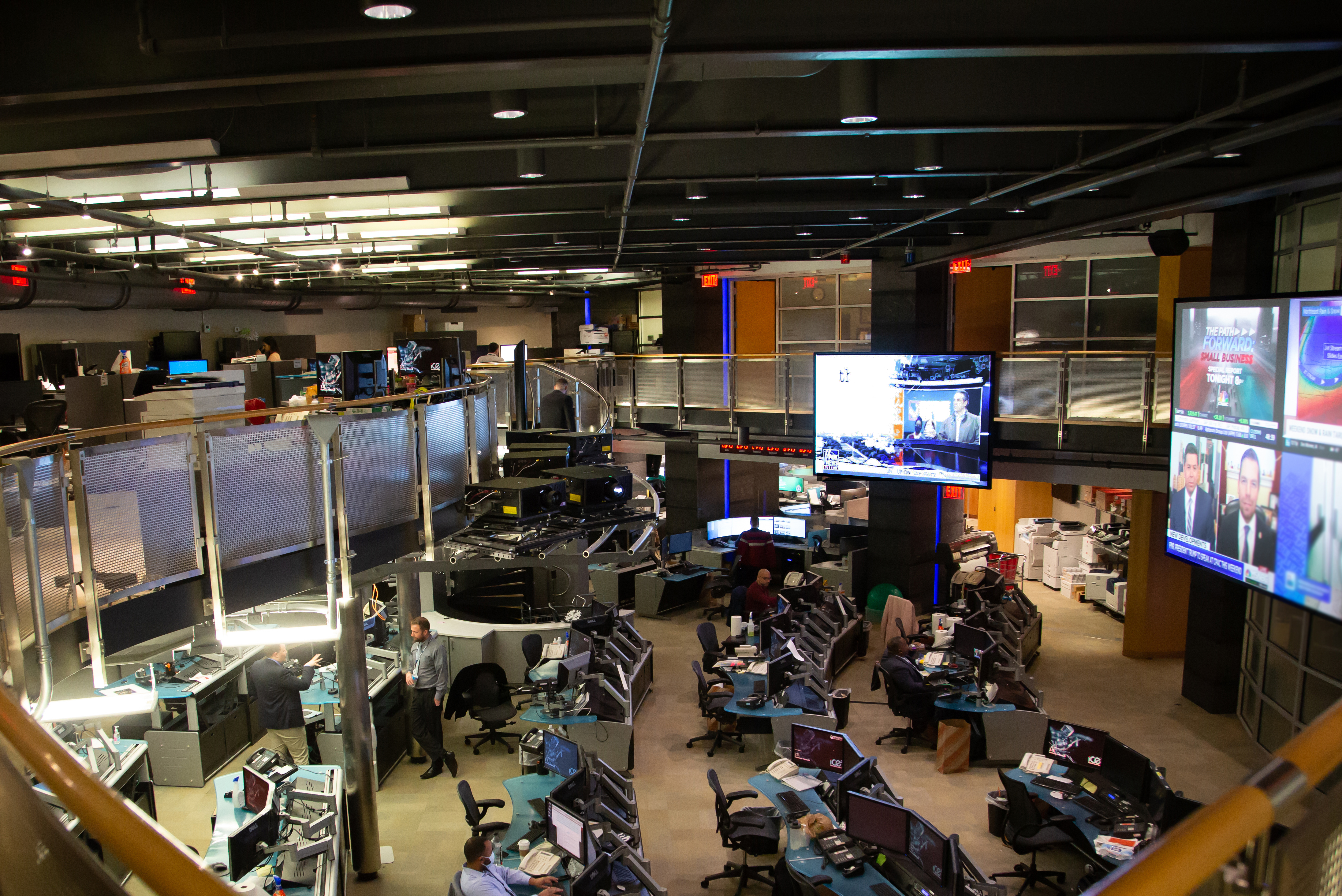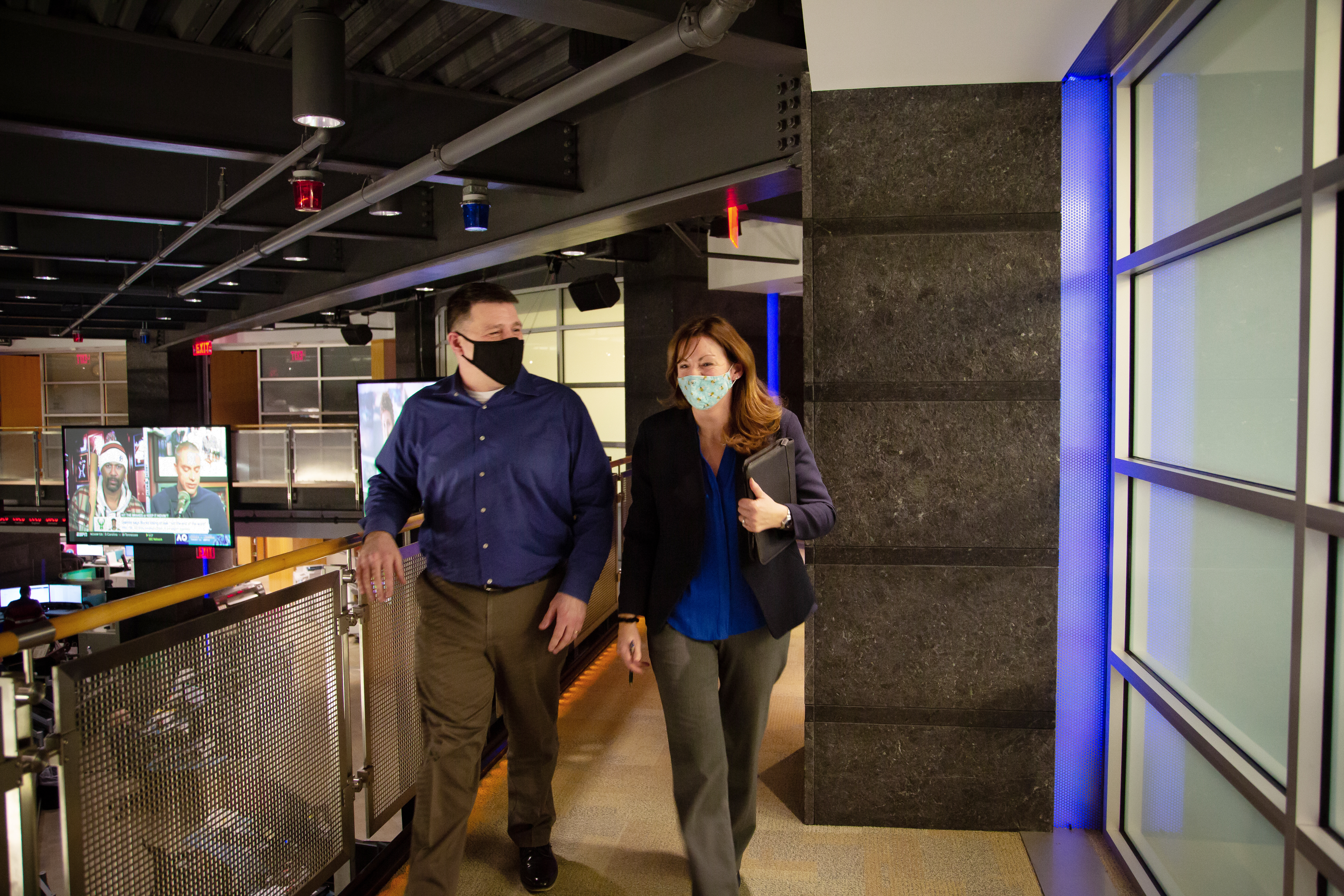
[ad_1]
Standing Watch 24/7: NCTC Operations Center
Photos by Jessica Hrabrosky, Office of Strategic Communications
Article by Victoria Piccoli, Office of Strategic Communications
The National Counterterrorism Center was stood up nearly 20 years ago in the wake of the tragic Sept. 11 attacks. Today, the NCTC Operations Center stands watch 24/7 to provide an integrated threat picture, real time insight, and warning against terrorist threats.
In the years since Sept. 11, NCTC has led intelligence integration on counterterrorism for the entire U.S. government through multiple crisis, attacks, and uncertainty.


“We generate daily situational awareness products for Intelligence Community’s senior leaders and policy makers, by filtering through thousands of cables every day to identify the most significant developments in counterterrorism,” said Stuart Graham, production coordinator, NCTC Operations Center.
The center acts as driving force behind NCTC’s whole-of-government response to events like the attacks in San Bernardino in 2015 or the Pulse Night Club shooting in 2016.

“Our team has been on duty for all kinds of breaking events,” said Graham. “During crisis situations, we gather the most up to date information to inform the community, policy makers, and senior leaders. We are the center of all breaking counterterrorism information.”
Today, the Operations Center falls under NCTC’s Directorate of Operations Support and is primarily focused on the mission of counterterrorism situational awareness, but also provides alerts and warning, education and training to officers, and information sharing across the U.S. government.
Graham, who has been in the IC for 12 years, is in charge of situational awareness products within the Operations Center.
“I go through thousands of cables every day to try to find the few items that the community needs to be aware of,” said Graham. “I will try to find the items that we need to track and brief them to the senior operations officer and deputy senior operations officer on the team.”
Once it is determined to be a significant update to the counterterrorism environment, Graham and his team will compile, edit and revise the situational awareness product – then send it out to the IC and other partners.

“It’s all about getting the complete picture to our customers as quickly and accurately as possible,” said Graham.
The attacks of Sept. 11, showed systemic issues with how counterintelligence information was coordinated across the IC and U.S. government.
Initially the Terrorist Threat Integration Center was created in 2003 to integrate counterterrorism capabilities and missions across the government.
This organization was later incorporated into NCTC by Executive Order 13354, which became the foundation for codifying NCTC’s authorities under the Office of the Director of National Intelligence in the Intelligence Reform and Terrorism Prevention Act of 2004.

Through EO 13354 and subsequently IRTPA, NCTC was given the responsibilities for not only integrating analysis and coordinating information sharing and situational awareness, but also for strategic operational planning in direct support to the President.
The lessons learned through the 9/11 Commission led to the current day NCTC Operations Center’s function and 24/7 capabilities.
“We are the first to notice when things are awry and alert NCTC and our partners across the interagency what is happening,” said Kirsten Gnipp, deputy chief, NCTC Operations Center. “We are now also leading an effort to help ensure that both private and public sector are made aware of issues of importance in the counterterrorism space.”
The officers on the floor work in shifts to cover the 24/7 mission and go through about 9,000 cables per day, said Gnipp.

“I have been with NCTC for over 10 years and before this position had no real appreciation for what the Operations Center does–what it does for the counterterrorism mission, and what the people here do for the safety and security of the country,” said Gnipp.
Gnipp was initially drawn to the counterterrorism mission after Sept. 11.
“At the time, I lived in Arlington, Virginia, just a mile and a half from the Pentagon and would drive past the side that got hit on my daily commute,” said Gnipp. “I remember standing on a berm watching as first responders draped the American flag on the Pentagon – now an iconic image.”
Gnipp has been at NCTC since 2009 where she started as an action officer and moved up as a branch chief in the Directorate of Strategic Operational Planning and later served as DSOP’s Chief for the Transnational Issues Group before joining the NCTC Operations Center.

“My background prepared me for this management and leadership role,” said Gnipp. “I wanted to join the Operations Center to be on the more tactical side of the mission space, particularly as counterterrorism is evolving.”
The national security threat environment has evolved and counterterrorism is no longer the preeminent threat like it was after Sept. 11, largely due to the work of NCTC, said Gnipp.
“Now we need to ensure that we are engaging with those focused on other threats within the global power competition, transnational organized crime, counterintelligence, threat finance, and others to ensure we are constantly sharing and learning from one another to create a robust national security posture,” said Gnipp.

NCTC has been successful in executing its mission to lead the U.S. government in the counterterrorism fight through interagency cooperation and coordination in planning, information sharing, identity intelligence and analysis, said Gnipp.
“NCTC must continue doing what it is doing to ensure counterterrorism doesn’t retake that number one threat spot,” said Gnipp.

[ad_2]
Source: DNI





